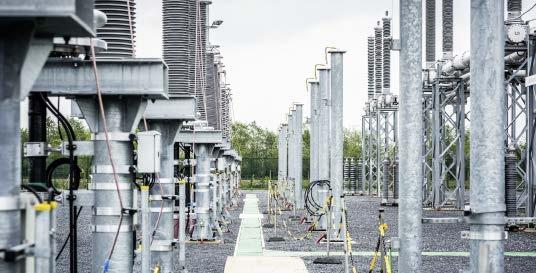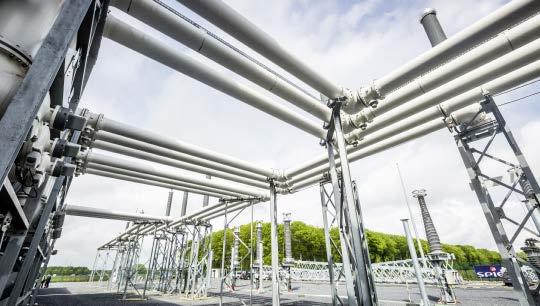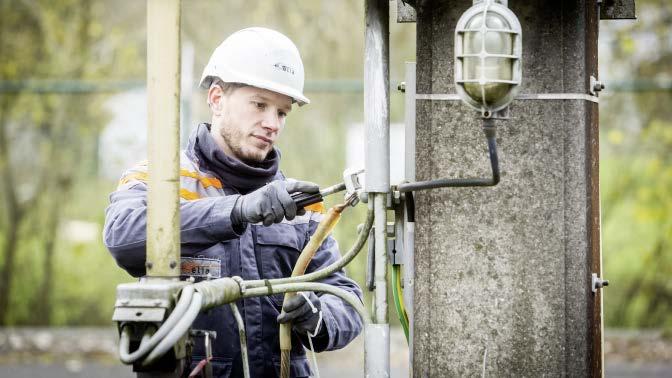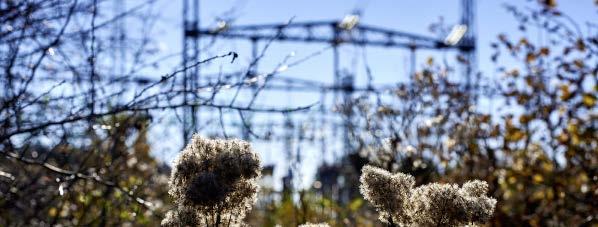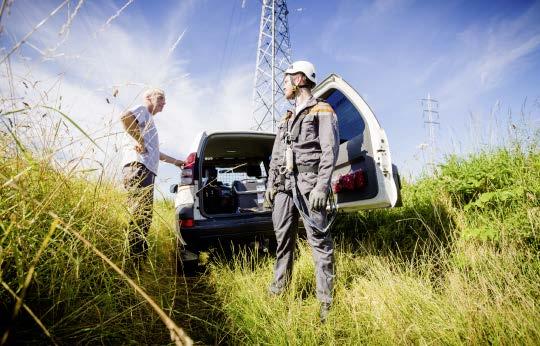
2 minute read
1.1. Elia’s 2050 Vision
Europe has committed to the decarbonisation of its society, with a target of an 80% reduction in greenhouse gas emissions (compared to 1990 levels) by 2050, as stated in the COP21 Paris Agreement. On the path towards 2050, Belgium is set to phase-out its nuclear generation by 2025. Currently this accounts for about one third of Belgium’s total installed capacity and for half of the produced electricity. On 15 June 2017, Elia has presented its point of view on the Energy Vision for 2050 and its key elements, in order to contribute to the current ongoing energy debate in Belgium [ELI-10]. Elia believes: — in a renewables-based and EU integrated electricity system where the full extent of our domestic potential is valorised and complemented – via interconnections – with affordable energy from the most efficient and sustainable resources abroad; — that the grid is key for integrating large amounts of renewables into both centralised and decentralised systems. Belgium should build upon its existing energy infrastructure (electricity and gas), by maintaining and further developing a strong and reliable electricity grid – both onshore and offshore – as well as interconnections with our neighbouring countries; — that short-term storage (e.g. batteries) and demand response are and will continue to help the system in terms of flexibility. They help balance the system and manage the daily variability of renewables (e.g. day-night cycles of solar photovoltaics). However, achieving full decarbonisation in the longer run (close to or beyond 2050) could require long-term storage technologies (e.g. ‘power-to-gas’, or
‘power-to-heat’), which are not mature enough today; — that gas-fired plants will play an important role for decades to come after the nuclear exit to ensure reliability (and contribute to sustainability in the short-term by replacing coal and lignite plants); — that Belgium should stay a competitive country at the centre of Europe – with a reliable energy supply – in order to create a stable environment for industry and citizens alike. In its vision document, Elia announced that it would carry out a comprehensive study that objectivises its views and brings forward answers – where possible – to some outstanding questions which will help policy makers by enabling them to take informed decisions.
Belgium should leverage on existing and upcoming energy infrastructure and its central EU position, to benefit from European renewable potential and the diversified energy mix of our neighbouring countries. In an energy world that is becoming more renewable and decentralised, with increasing levels of digitalisation and with consumers becoming increasingly active, Belgium could become an ‘Energy Roundabout for Europe’. This will provide: 1. A sustainable energy system enabling a decarbonised society, thanks to a renewable-based system where the full extent of our domestic potential is exploited, and where it is complemented with renewables sourced from abroad via interconnections. 2. An affordable energy system enabling a competitive economy, by building upon the complementarity of the generation mix of European countries. Thanks to its well interconnected infrastructure, Belgium can access energy from the most efficient resources located domestically and abroad. Digitalisation and an enhanced market design will help exploit the full value of the system. 3. A reliable energy system facilitating economic activity, thanks to an energy mix (renewables, imported energy via interconnections, demand response and storage, and thermal plants) that can meet demand at all times.


